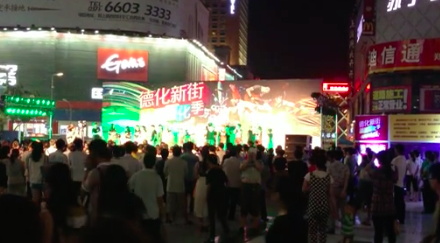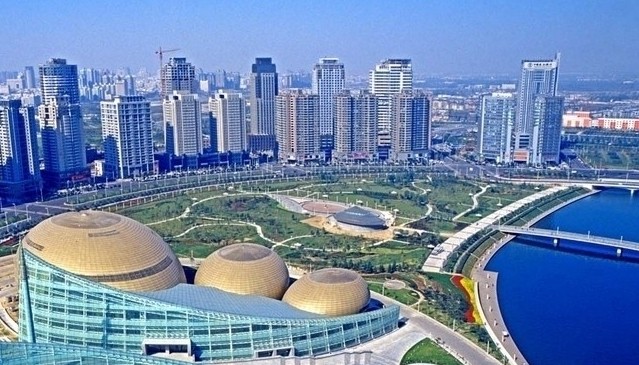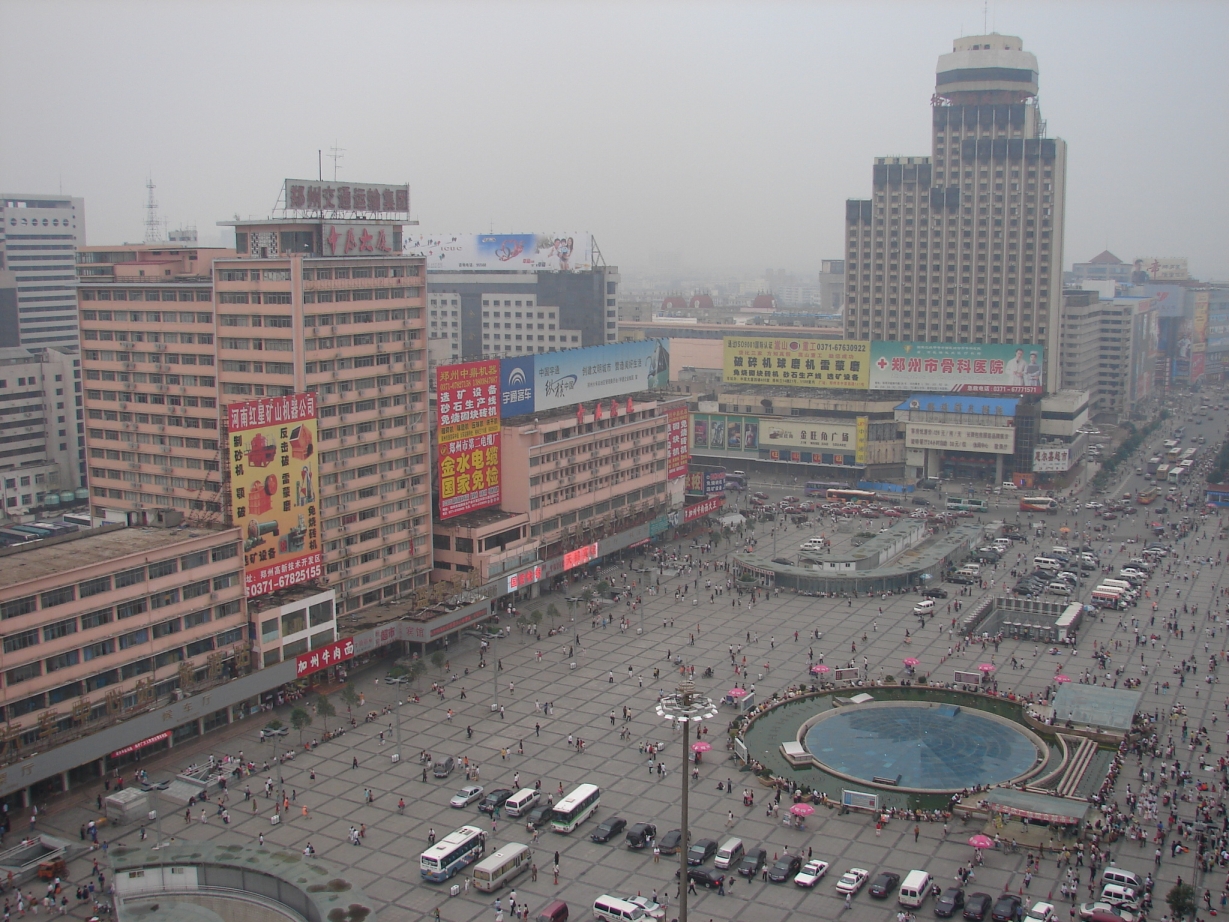I went to Zhengzhou’s version of Lincoln Center to see a Spanish dance troupe perform a flamenco love story called “Fuego en los Pies’’ (Fire in the Feet).
It was a highly entertaining show in a beautiful setting – a sparkling, glass-enclosed arts center located in the city’s new financial/entertainment/shopping district. The only disappointment was the audience.
I sat in the balcony with two Chinese friends, Amber and Brenda, and Brenda’s 76-year-old father. We were surrounded by distractions: mothers holding screaming infants in their laps, children playing in the aisles, people talking on their cell phones and the constant flicker of flashing cameras.
Although all those things were listed as prohibited behavior on a sign posted at every entrance and despite repeated warnings from an usher, the racket never stopped.
Brenda, a middle-aged Chinese woman who teaches English at my university, said many people in the audience got free promotional tickets from a luxury real-estate developer. They had either bought a home from the developer or expressed interested in buying one.
“They have money, but no manners,’’ she said.
***
When I was able to block out the noise and focus on the show, I had a great time. The flamenco music and dancing were infectious, and the spectators who did pay attention often clapped along with the performers. The lighting was spectacular, the sound was clear and the seats were comfortable.
Following the show, the 10 troupe members (nine men and one woman) posed for photos in the lobby. I asked one of them about the show, and he said it was created and directed by a Chinese artist especially for the group’s two-month tour of the Middle Kingdom.
I didn’t understand the whole story, but I can tell you it revolved around the love between a sexy woman in a slinky dress and a handsome man in a black vest and open-collar white shirt. The woman spends some time in a cage, surrounded by dancing “demons,’’ and there’s some fussing and fighting among the men. Brenda summarized it this way: “It’s a traditional Chinese love story – much suffering.’’
After leaving the theater, we walked around on a warm, humid night and saw the end of a free performance of Chinese opera on an outdoor stage. Chinese opera is a unique combination of music, drama, dance, martial arts and acrobatics, performed by actors in elaborate, colorful costumes. There are many regional versions, including Peking opera and Yu opera, the Henan-based variety that we saw last night.
In Western opera, it’s not over till the fat lady sings. Not so in Chinese opera, where the singers are mostly slender.





The mingling of artistic traditions you describe sounds wonderful.